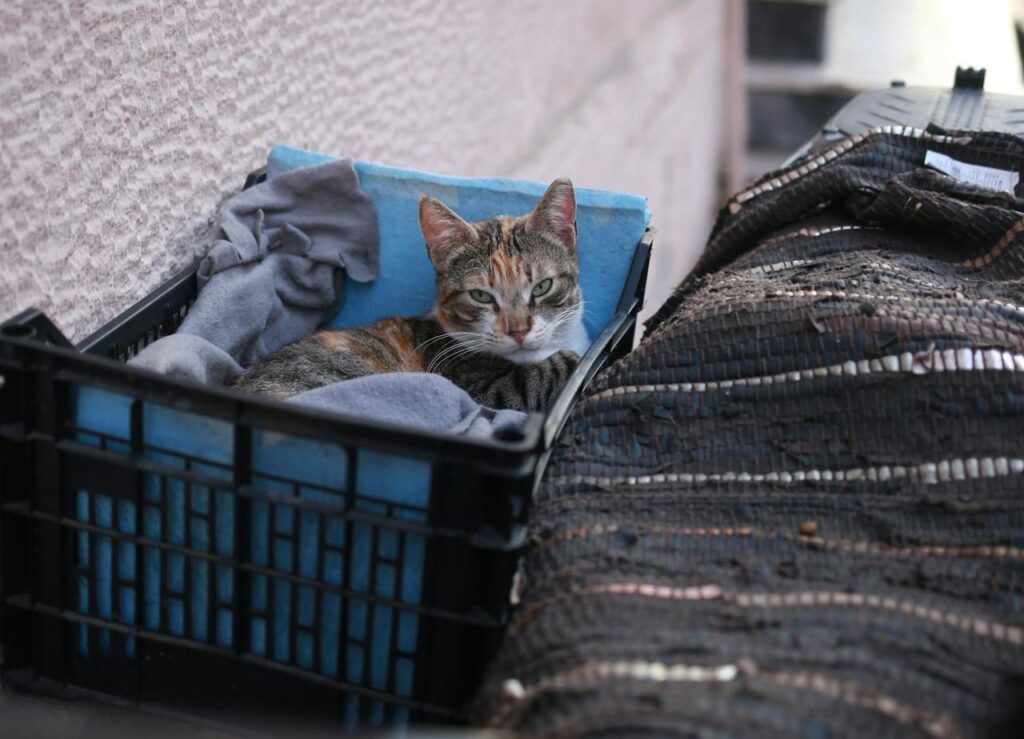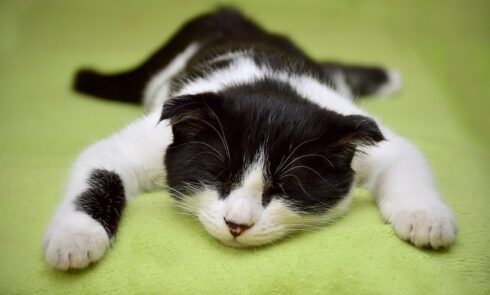Cats are beloved companions for many pet owners in New Zealand. Whether you’re a seasoned cat parent or considering adopting your first feline friend, understanding the lifespan and factors that contribute to a long, healthy life can help you provide the best care possible. In this comprehensive guide, we’ll explore the factors that influence a cat’s longevity, the average lifespan of cats in New Zealand, and tips for promoting a long and healthy life for your furry friend.
The Average Lifespan of Cats
Domestic Cats
The average lifespan of domestic cats varies considerably based on several factors, including genetics, lifestyle, and healthcare. On average, an indoor house cat can live between 12 to 15 years. However, with proper care, some cats can live well into their late teens or early twenties. Outdoor cats tend to have shorter lifespans, averaging around 5 to 7 years, due to increased risks such as accidents, diseases, and predators.
Specific Breeds
Certain cat breeds are known for their longevity. For instance, Siamese and Burmese cats often live longer than mixed-breed cats. Here are a few breeds and their average lifespans:
- Siamese: 15-20 years
- Burmese: 18-20 years
- Persian: 12-17 years
- Maine Coon: 12-15 years
- Ragdoll: 15-18 years
The Oldest Cats in New Zealand
While it’s rare, some cats defy the odds and live well beyond the average lifespan. One notable example is Creme Puff from Texas, who holds the record for the oldest cat, living to an impressive age of 38 years and 3 days. While New Zealand doesn’t have any official records of such extreme longevity, there are anecdotal reports of cats living into their late twenties.
Factors Influencing Cat Longevity

Genetics
Genetics play a significant role in a cat’s lifespan. Some breeds are predisposed to certain health conditions that can impact their longevity. For instance, Maine Coons are prone to hypertrophic cardiomyopathy, a heart condition that can shorten their lives. On the other hand, mixed-breed cats, often referred to as moggies, tend to have fewer genetic health issues due to their diverse gene pool.
Diet and Nutrition
A balanced diet is crucial for maintaining your cat’s health and longevity. High-quality commercial cat foods are formulated to provide essential nutrients, but it’s important to choose a diet appropriate for your cat’s age, health status, and activity level. Cats are obligate carnivores, meaning they require a diet rich in animal proteins. Supplementing their diet with omega-3 fatty acids, found in fish oil, can also support cardiovascular health and reduce inflammation.
Healthcare and Regular Vet Visits
Regular veterinary check-ups are essential for monitoring your cat’s health and catching potential issues early. Annual or biannual visits allow your vet to perform routine examinations, vaccinations, and dental care. Preventative healthcare, such as flea and worm treatments, also plays a vital role in keeping your cat healthy. Additionally, spaying or neutering your cat can prevent certain health problems and reduce the risk of roaming and fighting.
Indoor vs. Outdoor Living
Indoor cats generally live longer than outdoor cats due to reduced exposure to hazards such as traffic, predators, and infectious diseases. If you allow your cat outdoors, consider creating a safe, enclosed area where they can enjoy the fresh air and sunshine without the associated risks. Alternatively, supervised outdoor time on a leash can provide mental stimulation and exercise.
Mental and Physical Stimulation
Cats need mental and physical stimulation to stay healthy and happy. Providing a variety of toys, scratching posts, and interactive playtime can keep your cat engaged and prevent boredom-related behaviors such as overeating and destructive scratching. Puzzle feeders and treat-dispensing toys can also provide mental enrichment and encourage physical activity.
Socialization and Companionship
Cats are social animals and can benefit from companionship, whether from their human family or other pets. Positive interactions and socialization can reduce stress and promote overall well-being. If you have a single cat, consider adopting a second cat to provide companionship, especially if you spend long hours away from home.
Promoting a Long and Healthy Life for Your Cat
Regular Exercise
Encouraging regular exercise can help maintain your cat’s physical health and prevent obesity, a common issue in domestic cats. Interactive play sessions with toys like feather wands, laser pointers, and ball tracks can provide both exercise and mental stimulation. Additionally, providing climbing structures and perches can encourage natural behaviors like climbing and jumping.
Dental Care
Dental health is often overlooked but is crucial for your cat’s overall well-being. Regular brushing with cat-specific toothpaste, along with dental treats and toys, can help reduce plaque and tartar buildup. Annual dental cleanings by your veterinarian can also prevent periodontal disease, which can lead to serious health issues if left untreated.
Hydration
Ensuring your cat stays hydrated is essential for kidney and urinary tract health. Provide fresh water daily and consider using a cat water fountain to encourage drinking. Wet cat food can also contribute to your cat’s daily water intake, especially for cats that are prone to urinary issues.
Stress Reduction
Stress can negatively impact your cat’s health and longevity. Create a calm and stable environment by providing hiding spots, vertical spaces, and quiet areas where your cat can retreat. Minimize changes to their routine and environment, and introduce new experiences gradually to reduce stress.
Monitoring Health Changes
Being attuned to your cat’s behavior and health can help you identify potential issues early. Monitor changes in appetite, weight, litter box habits, and activity levels. If you notice any unusual behavior or symptoms, consult your veterinarian promptly for a thorough evaluation.
Conclusion
Understanding the factors that influence a cat’s lifespan can help you provide the best care for your feline companion. By focusing on nutrition, regular veterinary care, mental and physical stimulation, and a safe living environment, you can promote a long and healthy life for your cat.
Are you ready to take your cat’s care to the next level? Book a consultation with our expert team today and discover personalized tips and recommendations for your furry friend’s well-being. Together, we can ensure your cat enjoys a happy, healthy, and fulfilling life.
FAQ
One way to ensure your cat is getting enough exercise is to monitor their weight and overall fitness level. Engaging your cat in regular play sessions, providing climbing structures, and encouraging activities like chasing toys are great ways to keep them active. If your cat seems lethargic or gains weight, it might be time to increase their exercise routine.
The best diet for your cat depends on their age, health status, and specific dietary needs. Generally, a high-quality commercial cat food that meets AAFCO standards for complete and balanced nutrition is recommended. Cats require a diet rich in animal proteins, with appropriate levels of fats and carbohydrates. Consult your veterinarian to tailor your cat’s diet to their individual needs.
Routine veterinary check-ups are essential for your cat’s health. Most cats should visit the vet at least once a year; however, senior cats or those with chronic health conditions may require more frequent visits. Regular check-ups allow for early detection of health issues and ensure your cat’s vaccinations, dental care, and preventative treatments are up-to-date.
Indoor cats are generally safer and tend to live longer than outdoor cats due to reduced exposure to risks like traffic, predators, and diseases. If you choose to let your cat outside, consider a secure, enclosed outdoor space or supervised leash walks to minimize risks while allowing them to enjoy fresh air and stimulation.
Minimizing changes in your cat’s environment and maintaining a consistent routine can help reduce stress. Provide a variety of hiding spots, vertical spaces, and quiet areas where your cat can retreat. Using calming products like pheromone diffusers and offering plenty of mental and physical enrichment can also help manage stress levels.
Common signs of illness in cats include changes in appetite, weight loss or gain, vomiting, diarrhea, changes in litter box habits, lethargy, and unusual behaviors. If you notice any of these symptoms, it’s important to consult your veterinarian promptly for a thorough evaluation and appropriate treatment.


